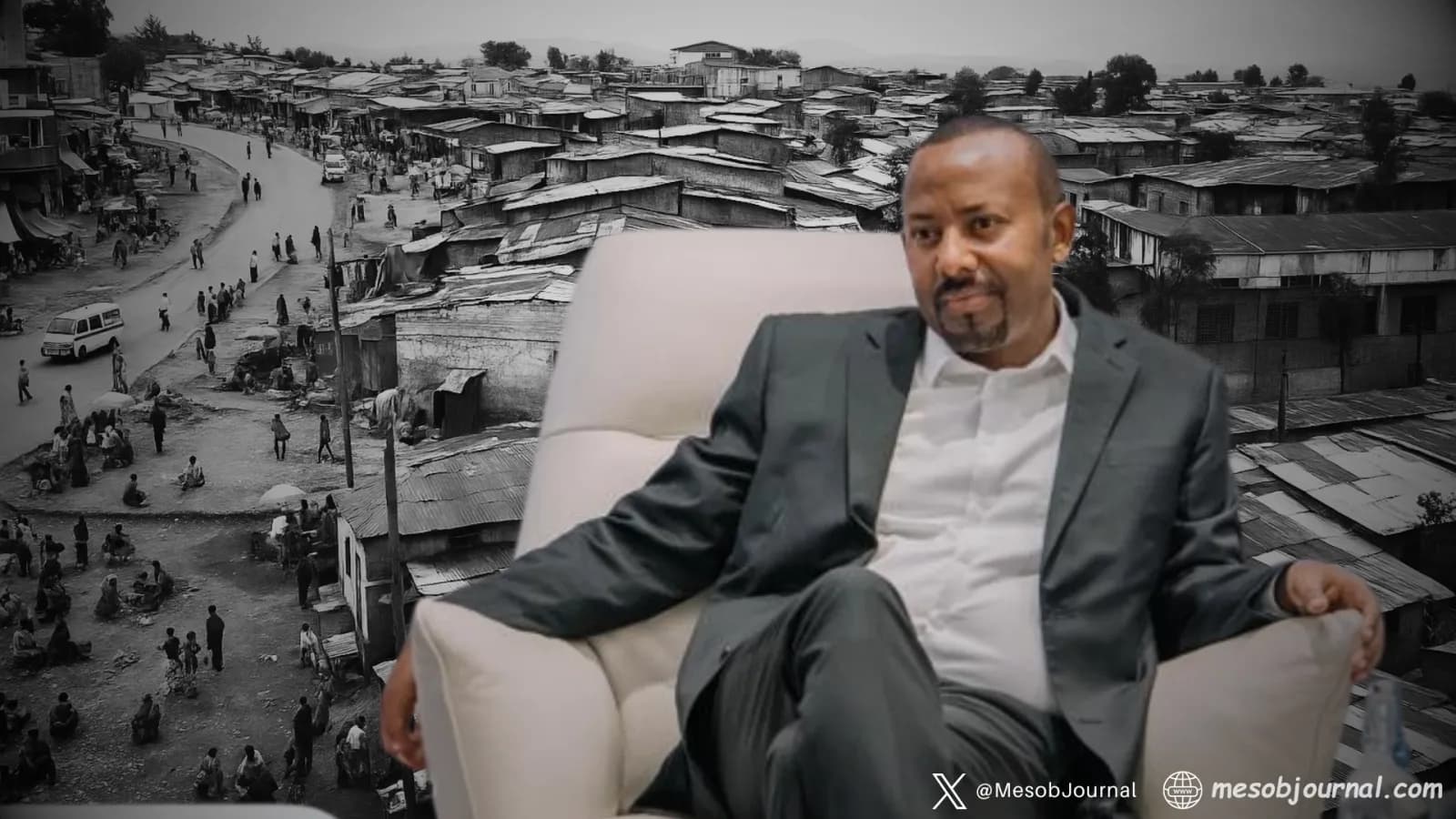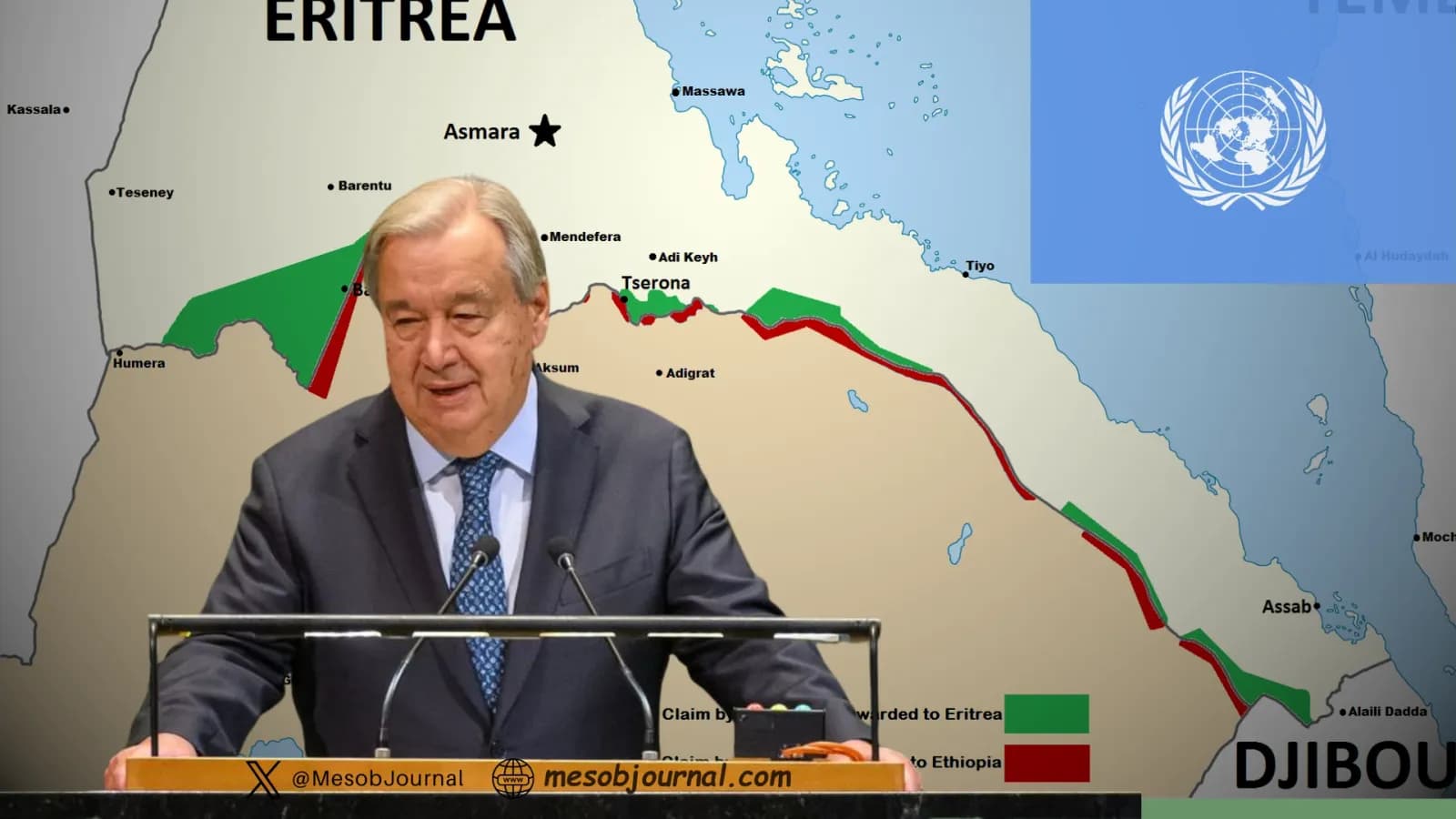Ethiopia’s Poverty Deepens as Abiy’s Wars Drag the Nation Toward Collapse

For a country once paraded as Africa’s “rising star,” Ethiopia’s latest poverty report reads like an obituary for a dream that never matured. The World Bank’s Poverty & Equity Brief paints a grim picture: nearly four out of ten Ethiopians now live below the poverty line, up from one in three just a few years ago. By 2025, that figure is projected to climb to almost 43%.
What happened? In a word — war.
A nation bleeding itself dry
Since 2020, Ethiopia has been at war with itself, and sometimes with its neighbors. The Tigray conflict alone—one of the deadliest of the century—killed hundreds of thousands and shredded the national economy. While the world celebrated the Pretoria peace accord, the guns never truly fell silent. In Amhara, new fighting has erupted with the Fano militia. In Oromia, insurgencies continue to flare.
Each war drains what little the country has left: skilled workers, farmers, cash reserves, and confidence. The brief notes that rural Ethiopia, home to three-quarters of the population, is now trapped in multi-dimensional poverty.
- 95% of households lack even basic sanitation.
- 70% have no electricity.
- Half of rural children are stunted—a human tragedy that no reform plan can disguise.
Add inflation, currency depreciation, and ballooning debt, and the pattern becomes unmistakable. Ethiopia is fighting too many battles—on too many fronts—and losing them all.
Reforms in name, ruin in practice
Abiy Ahmed’s government has spent years announcing “reforms”: a shift to a market-determined exchange rate, new tax and trade rules, electricity tariff hikes, and the removal of fuel subsidies. On paper, these sound like the hallmarks of modernization. In reality, they’ve hit the poorest hardest—because the safety nets that should cushion such changes were shredded by war.
The World Bank expects poverty to peak in 2025 before any slight relief—an optimistic assumption given the continued instability and growing debt burden. Ethiopia already defaulted on its Eurobond, is begging for IMF debt relief, and depends on humanitarian assistance for tens of millions.
But even aid agencies are exhausted. The World Food Programme and other partners have cut or suspended operations, citing both funding shortfalls and government interference. In short: the system is cracking.
Abiy’s wars — and his widening frontiers
The Prime Minister once promised prosperity through peace. Instead, he has delivered neither. From Tigray to Amhara to Oromia, the state has become a machine that crushes dissent and manufactures enemies.
And increasingly, Abiy’s ambitions extend beyond Ethiopia’s borders. His reckless talk of “access to the sea by any means” and veiled threats toward Eritrea and Somalia have alarmed the entire Horn of Africa. Diplomats whisper what few dare to say aloud: a government that cannot govern its own provinces has no business dreaming of territorial expansion.
What’s unfolding is a textbook case of internal decay masked as regional bravado. When a leader cannot feed, unite, or reform, he seeks distraction—often in the form of a foreign “cause.”
Poverty by policy
The poverty spiral Ethiopia now faces isn’t an act of nature. It’s the result of conscious political choices:
- Choosing force over dialogue.
- Choosing propaganda over policy.
- Choosing expansionist rhetoric over internal reform.
Each of these choices tightens the noose on ordinary Ethiopians—the farmer who can’t sell his grain, the teacher whose salary buys half as much each month, the mother skipping meals so her children can eat.
And if the past five years prove anything, it’s that no IMF loan, debt haircut, or donor conference can fix a nation at war with itself.
The bottom line
Ethiopia’s tragedy is now quantifiable. Poverty up. Growth down. Debt unsustainable. Confidence evaporated. Abiy’s government is bleeding legitimacy at the same pace it bleeds its economy.
The wars that were meant to secure his rule are instead dismantling the very idea of an Ethiopian state. And as his rhetoric turns outward—toward neighbors who want nothing to do with his chaos—the danger multiplies.
For the Horn of Africa, this isn’t just Ethiopia’s problem. It’s a slow-motion implosion playing out in real time, with a ripple effect no border can contain.
Related stories

Abiy Ahmed’s Strategic Isolation Is Now in Writing
What Addis Ababa has spent two years denying is now staring it in the face—on White House letterhead. The January 16 letter from Donald Trump to Abdel Fattah el-Sisi isn’t just about mediation. It’s a signal. Clear, deliberate, and consequential. Washington is aligning itself

When Maps Become Messages: Ethiopia’s Dangerous Normalization of Territorial Claims
There are moments in diplomacy when silence is louder than words. And there are moments when a picture—deliberately chosen, officially circulated—does more damage than a thousand speeches. The map displayed this week in a video released by Ethiopia’s Prime Minister’s Office belon

Ethiopia on the Brink: A Humanitarian Crisis Deepened by Political Choices
The International Rescue Committee’s latest Global Humanitarian Crisis Watchlist offers a sobering snapshot of the world heading into 2026. Ethiopia now ranks among the top five most at-risk countries globally — alongside Sudan, Palestine, and South Sudan. This is not a symboli

Eritrea-Ethiopia Algiers Agreement at 25: International Law Still Stands
Twenty-five years after the signing of the Algiers Agreement, the United Nations Secretary-General has once again urged Eritrea and Ethiopia to “respect the border pact.” On the surface, the message sounds balanced, even responsible. But anniversaries are not just moments for rit

